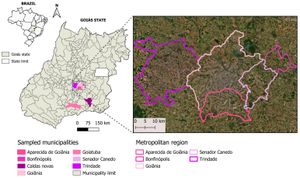President Donald Trump’s administration has put forth tariffs threatening hefty charges on various imports, potentially impacting numerous sectors. One area of discussion is the aerospace sector, particularly relating to Mexico, which may largely remain untouched by these measures.
During a recent webinar hosted by the Mexican Federation of the Aerospace Industry (FEMIA), Beatriz Ramos García, the founding partner at Van Beuren & Hamilton's Customs Area, shared insights on how these tariffs might not significantly affect the Mexican aerospace sector due to its unique position. The webinar, entitled “The Impact of Customs in the Global Framework of Foreign Trade,” aimed to clarify the intricacies of tariff impacts on this specific industry.
Ramos García explained, “Mexico does not make airplanes, but rather components to be included in aircraft” assembled elsewhere. This distinction is pivotal as it suggests many parts manufactured don’t face the same scrutiny of tariffs imposed on complete aircraft. She noted, "I cannot see the part... directed to some sectors such as the automotive sector,” highlighting how the tariffs are geared more toward controlling automotive imports than aerospace components.
The main argument rested on the premise of defining these imports and their role within the manufacturing process. RPM penalties might not apply if the imports are deemed part of production processes rather than finished goods. Accordingly, Ramos García asserted, “if President Trump thinks it is enough there are 10,000 soldiers deployed on the border, this will never go to effect.”
Ramos García offered two significant reasons why tariff exemptions are plausible: first, the nature of the goods produced, and second, the origin of these goods, which often do not trace back to Mexico. She expressed the importance of clearer customs control measures and noted, “these imports do not affect the aeronautical industry in the United States.”
This line of reasoning points to potential motivations behind the tariffs, indicating they might function as political leverage rather than economic policy aimed at aerospace goods. Ramos García’s insights offer a glimpse of the negotiations and reconsiderations taking place as industries brace for change under Trump’s administration.
By presenting these concerns, Ramos García urged stakeholders to closely analyze their specific situations relative to the tariffs. “It is also true... this will never go to effect,” she asserted, showcasing confidence about circumventing effects through legal interpretations and clearer customs process enhancements.
Overall, the aerospace sector’s dependence on foreign components might often place it outside the direct line of fire concerning tariffs, especially when most of those structures are only part of broader composite assemblies rather than complete products. The discussion encouraged those involved to stay informed and critically assess potential obligations under any new tariff regulations.
Communications around customs and tariffs continue to evolve, and attention devoted to the aerospace sector could lead to significant developments as entities seek compliance and strategize their production processes within the legal framework. The statements from Ramos García also endorse the necessity for procedural clarity and reduced administrator discretion at the customs level to mitigate issues born from trade disputes.



